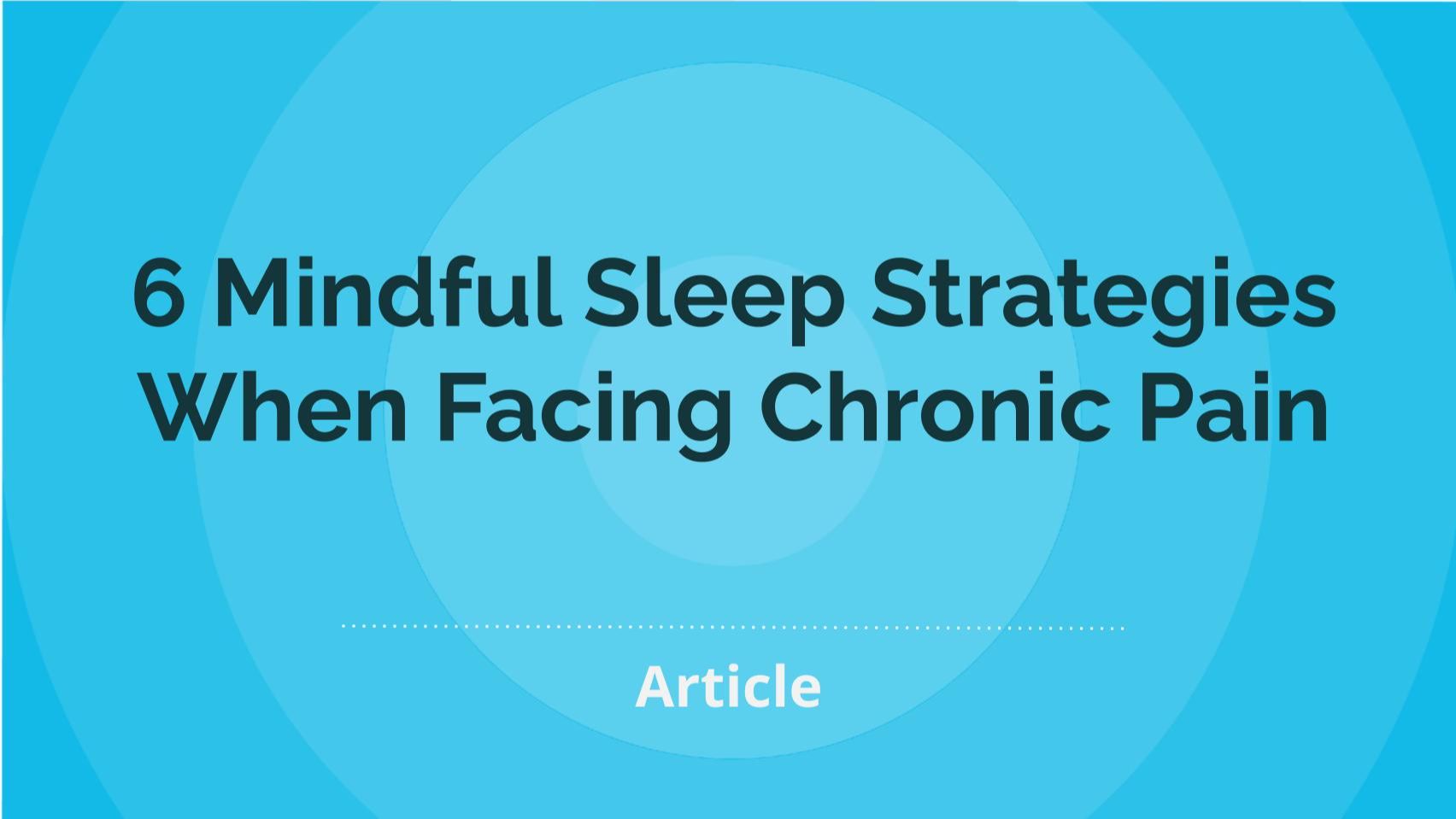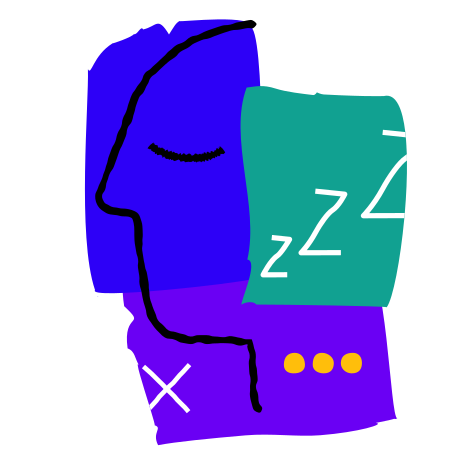6 Mindful Sleep Strategies When Facing Chronic Pain
Feb 25, 2023
Getting a good night's sleep is essential for overall health and well-being. Research has shown that sleep plays a critical role in physical and mental health, including immune function, metabolism, and cognitive function.
Unfortunately, many who suffer from chronic pain have challenges falling asleep and staying asleep, which can result in exhaustion and a greater manifestation of symptoms. This cycle of intense pain and poor sleep can lead to depression, anxiety and hopelessness.
Here are some ways chronic pain affects sleep:
- Difficulty falling asleep: Severe pain and the anxiety it often causes can make it harder to relax and fall asleep.
- Interrupted sleep: Chronic pain can cause a person to wake up frequently during the night, which can lead to chronic exhaustion.
- Poor quality sleep: While some people might manage to sleep through the night, pain can cause them to have poor quality sleep from not enough time in the deeper, more restorative stages of sleep.
- Increased sensitivity: Chronic pain can cause a person to become more sensitive to other stimuli, such as noise and light, which can further disrupt their sleep.

To promote healthy sleep habits, there are several foundational research-based guidelines to consider following. Prioritize getting enough sleep (7-9 hours for adults), stick to a regular sleep schedule, and create a relaxing sleep environment. Also, limiting caffeine and alcohol, avoiding screens before bed, exercising regularly, and managing stress are critical to a good night's rest.
Incorporating relaxation techniques like deep breathing, meditation, or yoga into your bedtime routine can help calm your mind and promote relaxation. Mindfulness, the practice of being aware of the present moment, without judgment, can help individuals break the cycle of negative thoughts and feelings that can make it difficult to fall asleep and stay asleep. Research has shown that mindfulness-based interventions can reduce pain intensity and unpleasantness and improve sleep quality and overall well-being in individuals with chronic pain.
Here are six specific mindfulness-based sleep strategies, validated by research, for chronic pain:
1. Mindful Breathing
Practice breathing exercises to calm your mind and relax your body. If you notice tension or anxiety arising, try to take a kind and accepting stance to whatever is showing up. Remember that it’s not about clearing your mind or not being distracted - you can shorten your practices or let go of them completely at any time. Try this brief mindful pause (2-min) or this longer mindful breathing practice (10-min).
2. Body Scan Meditation
This involves focusing your attention on different parts of your body, from your toes all the way up to the crown of your head. With each breath, bring your attention to a different area of your body, noticing any sensations, pain or discomfort. Finish off with an awareness of sensations in your entire body. Remembering that if at any time sensations become too challenging you can always release the practice. This practice can create more space around pain in your body. Try this guided body scan practice (12-min).
3. Progressive Muscle Relaxation
While not traditionally a mindfulness practice, this technique does require an open and accepting awareness of sensations and involves tensing and relaxing each muscle group in your body, starting from your feet and moving up to your head. This may help to release tension and stress in your body, leading to relaxation and better sleep.
4. Visualization with Mindful Self-Compassion
Begin by reminding yourself of the three aspects of mindful self-compassion including; self-understanding (self-kindness rather than self-punishment), acknowledging that we’re not alone in our struggles, and mindfully maintaining presence without exaggerating or diminishing our experience. On the in-breath, set an intention and visualize receiving whatever ease, softening, spaciousness you need in the moment. And, on the outbreath, experience the ease of exhalation and letting go. This can help anchor your attention on a nourishing activity and promote relaxation.
5. Mindful Movement
Prior to sleep take some time to focus on the sensations in your body as you move, and maintain a non-judgemental and accepting stance towards whatever thoughts, emotions or sensations that may arise. Gentle yoga or stretching exercises can help to release tension in your muscles and improve circulation, which can promote better sleep.
6. Gratitude Journaling
Before bed, write down three things you are grateful for. This can help to shift your focus from pain and worry to positive experiences and emotions, leading to a more peaceful and restful sleep.
Additional research-based sleep strategies that can help improve sleep quality and manage pain include Cognitive Behavioral Therapy (CBT), which can help individuals change negative thoughts and behaviors around sleep, and complementary therapies like acupuncture and massage therapy. Medications, like analgesics and muscle relaxants, may be effective in managing pain and improving sleep, but it's essential to consult with a healthcare provider before trying any new medications or therapies.

Michael Apollo MHSc RP is the founder of the Mindful Society Global Institute. Prior to founding MSGI in 2014, he was the Program Director of Mindfulness at the University of Toronto. He is an educator, licensed mental health clinician and certified facilitator in Mindfulness-Based Stress Reduction and Mindfulness-Based Cognitive Therapy.
References:
Join our weekly newsletter for insightful articles and free events
Be the first to learn about upcoming FREE events, receive early bird pricing for courses and stay in touch with weekly newsletters!


